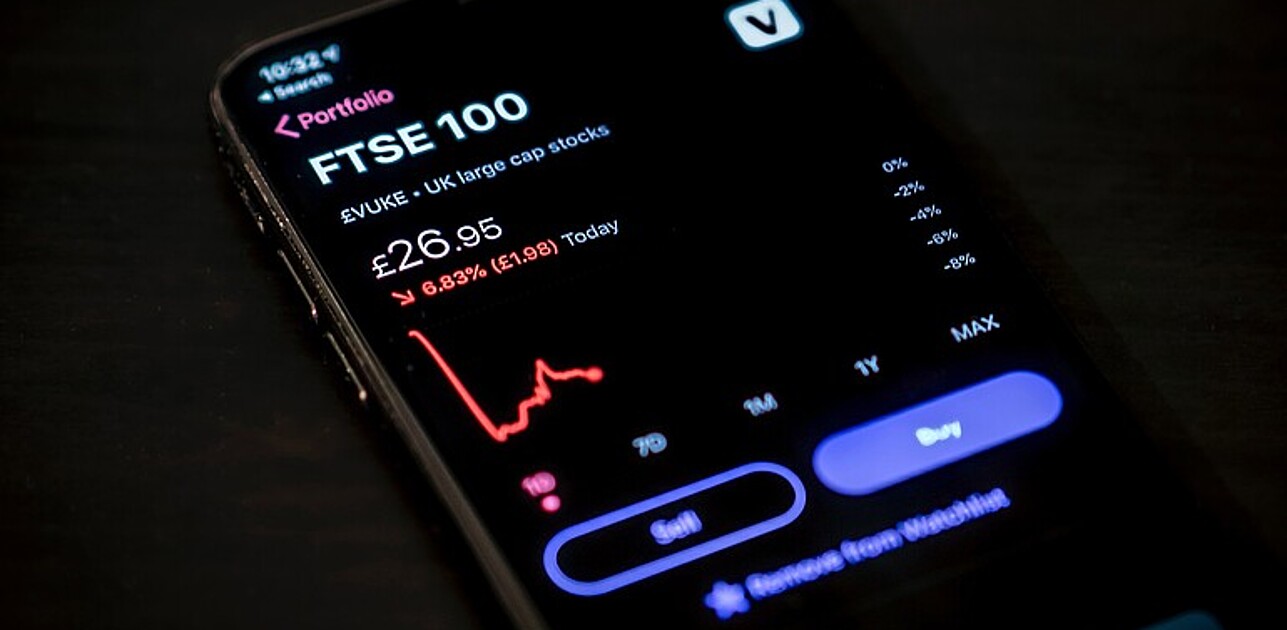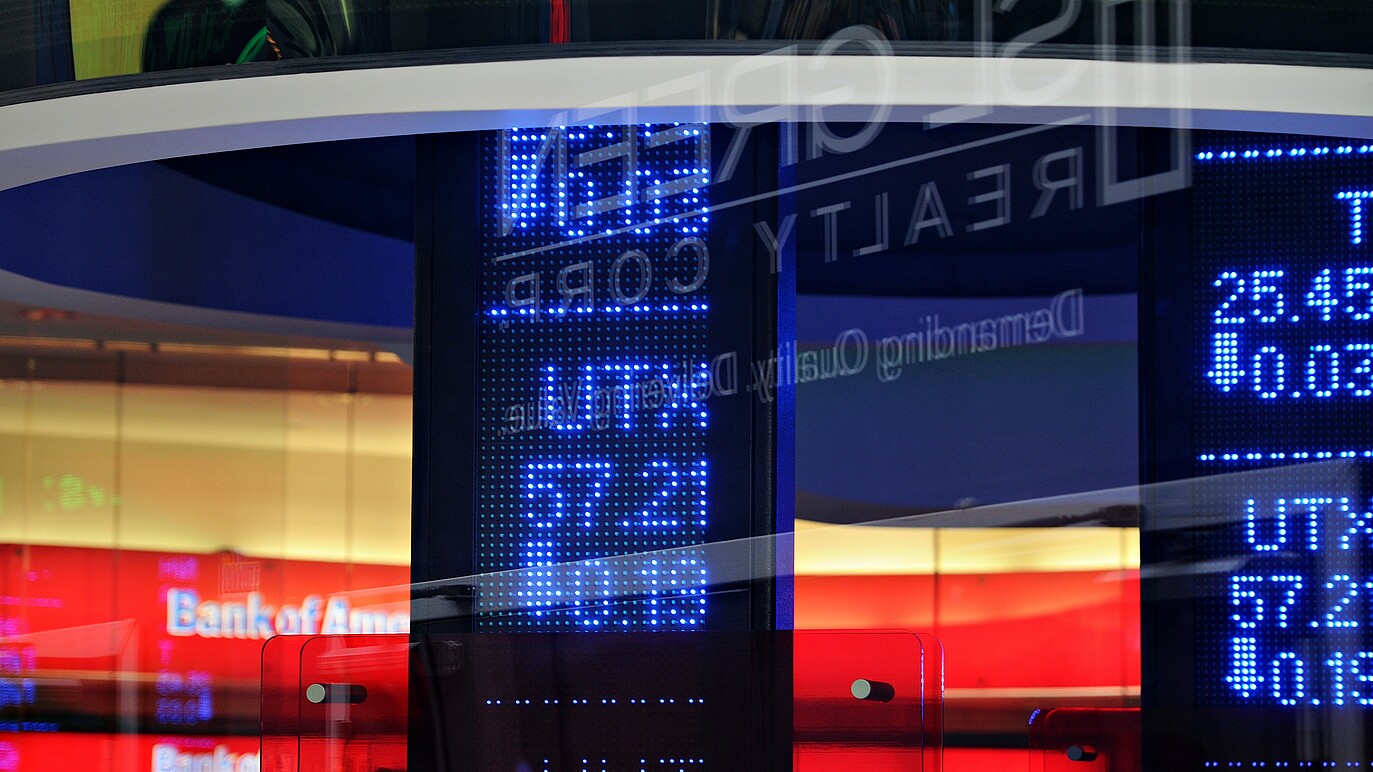

Blog: Tuesday, 24 March 2020
In the past week or so, stock markets plummeted left and right. Since mid-February, Amsterdam’s AEX index lost no less than a third of its value. And the same thing happened to the Dow Jones in the US, and to the global MSCI World Index. Thursday March 12 proved the worst day for Damrak and Wall Street since 1987’s ‘Black Monday’. What does this all mean exactly? Have companies really lost a third of their value in such a short time span? Or are investors worldwide simply panicking? And what can we expect the market to do in the period ahead? Here’s Prof. Mathijs van Dijk’s opinion piece as it appeared in Dutch financial newspaper Het Financieele Dagblad on 17 March 2020.
If you want to say anything useful about this massive ‘bear run’, it helps to return to the basic principles of share valuation. According to standard financial theory, the value of a company is equal to the total sum of its future dividend payments when discounted to their present value.
For example: a company will be ceasing operations next year, and investors expect it to pay a final dividend of €1 per share before shutting down. How much investors are prepared to pay for a share of this company right now depends on the return they want to make – their required rate of return (RRR). If investors – taking the risk posed by this particular share into account – require a 5 per cent return per year, they will currently value this company’s stock at slightly over €0.95 per share. This 5 per cent factor is known as the ‘discount rate’: it basically indicates to which degree investors ‘discount’ the (uncertain) payment of one euro in one year’s time.

Let’s return to the current situation. How can we make sense of this 33 per cent drop in share prices? We see that a lot of companies have been hit by the COVID-19 crisis and the low oil prices. The profitability of airlines has been seriously undermined, affecting their ability to pay dividend to their shareholders. But for a 33 per cent decrease in share prices to be explained by decreased profits only, the expected profitability of all listed companies should permanently have decreased by around one third. This hardly seems likely.
Apart from a decrease in expected dividends (due to lower returns), however, the theory also proposes another explanation for the fall in share prices: an increase in investors’ RRR – and thus the discount rate. An increase like this is determined by two factors: investors’ assessment of the risk posed by a share, and their level of ‘risk aversion’.
The latter two factors are known to increase in times like these. Investors can reasonably expect companies’ share value to be more uncertain than a few weeks ago. We simply don’t know yet how much corporate profits will be affected by the present crisis. What’s more: investors are less prepared to take risks in times of crisis. Both factors lead them to seek a higher RRR, which also explains in part why share prices have plummeted to this degree.
So what about panic then? The conventional theory assumes that investors make purely rational decisions. There’s no room for panic or other psychological effects. The idea that share prices always precisely reflect a rationally established discounted value is known as the ‘efficient market hypothesis’. This hypothesis also says that future share prices are entirely impossible to predict. In other words, share prices evolve according to a ‘random walk’. This doesn’t mean the stock market itself is completely random. If share prices truly follow a random walk, this is actually the sign of a perfectly functioning market. The reason for this is that, in an efficient market, share prices only change in response to new information – as it comes in. And news is by its very nature unpredictable.
Over the past few decades, we’ve seen a lot of evidence that psychological factors do play a significant role on the stock market. Share prices can deviate from their actual, rational value for prolonged periods of time. But such irrational valuations can only be recognised in hindsight. Even professional investors aren’t able to systematically beat the market by taking advantage of market inefficiencies.
What does this mean for the stock market? Panic may indeed be playing a part in the current bear market – leading to new opportunities for bargain hunters. But there could also be a rational explanation for the recent drop in prices: lower expected profitability combined with a higher rate of return as required by investors. The fact that the market isn’t entirely governed by chance is obvious when we look at the current valuation of KLM shares, which has dropped at a far higher pace than Ahold, for example. But it is also possible that the market may still have been too cautious, with share prices falling even further in the period ahead.
If the current crisis proves relatively brief, with limited economic fallout, investors’ RRR will once again decrease (leading to a recovery in many share prices) as soon as the worst uncertainty has passed. But who knows whether and when this will be the case? That’s the irony of the efficient market hypothesis. We know that in many cases it is not a good description of stock markets, but that doesn’t make predicting the market any easier. But at the same time, that’s also what makes stock markets so interesting.


Science Communication and Media Officer
Rotterdam School of Management, Erasmus University (RSM) is one of Europe’s top-ranked business schools. RSM provides ground-breaking research and education furthering excellence in all aspects of management and is based in the international port city of Rotterdam – a vital nexus of business, logistics and trade. RSM’s primary focus is on developing business leaders with international careers who can become a force for positive change by carrying their innovative mindset into a sustainable future. Our first-class range of bachelor, master, MBA, PhD and executive programmes encourage them to become to become critical, creative, caring and collaborative thinkers and doers.
